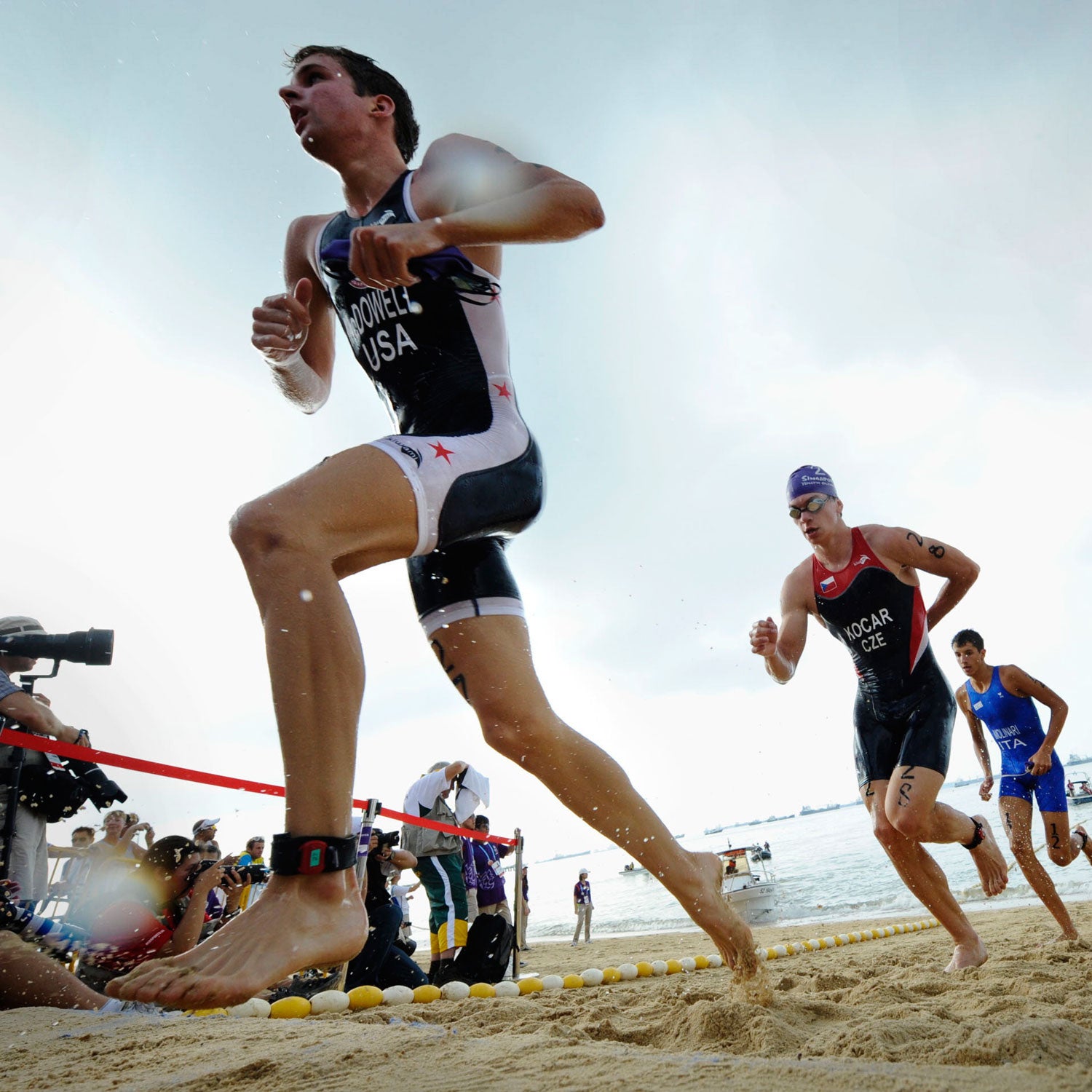A ticket to Kona is the most exclusive invitation in all of endurance sport. Only the freakishly fit, most tenacious, -endowed athletes qualify for the world championship at various Ironman races around the globe. But since 1983, Ironman has left the back door for its marquee event slightly ajar via a lottery program in which 100 age groupers can qualify each year. Last week the federal government deemed that program illegal and shut it down. Here’s what’s in store for future Kona hopefuls.
In the past, for $50 an athlete could enter the lottery. If selected, he or she paid an additional $850 to register for the race, the same registration fee as any competitor. In March, Ironman announced the 100 lottery winners for the 2015 race, ranging in age from 20 to 74, and representing 16 countries. But they will be the last class of athletes to make it to Kona through the current lottery system.
The federal government’s “view was that for the last 30 years we’ve been operating an illegal gambling enterprise and that the Kona lottery under Florida anti-gambling and anti-lottery statutes is illegal,” said Ironman CEO . “We do not have a license to conduct gambling operations, and the government’s view is that this is gambling.” Without admitting any wrongdoing, Ironman has paid $2,761,910 to the government for money collected from the lottery dating back to October 2012, a negotiated date.��
“There is an old American saying, ‘You can’t fight City Hall,’” Messick wrote in an all-company memo. “Rather than undertake what we expect would be a protracted dispute with the federal government, we chose to settle and move forward.”
So what happens next? Athletes who entered the lottery this year will still be able to race, but the future is less certain. Athletes can still enter the race through Ironman’s , which rewards athletes who have raced 12 or more Ironmans with a Kona slot. (In 2012, Ironman took 100 slots from the main lottery, which up to then offered 200 slots, to create the Legacy Program.) Messick says the Legacy Program fulfills the founders’ original goal with the lottery, which is “to find the pathway to Kona for athletes that aren’t blessed with great athletic ability.”��
But few athletes have raced 12 Ironmans. And while the is 30, it could take most dedicated athletes decades to complete a dozen events. To appease fans not eligible for Legacy slots, Ironman is also considering a smaller scale lottery that would be free, but Messick says the company is concerned that having no barrier to entry will clog the lottery with people who have never gone the distance.
However Messick suggests the age-group race may simply absorb the slots. “There are a number of modifications that could be possible, but since the DOJ has given us no indication of what is and is not legal in their view we are having to be very conservative,” Messick says. “We are under enormous pressure to find slots for all the people who want to go to Kona, and while we will miss the lottery we’re happy to have the 100 slots back because we believe we can put those to good use for age-groupers.” But there are several better ways to allocate those Kona slots.
Ironman should put a handful of them towards growing female participation in the sport through the company’s own (of which I am a founding board member), launched in December in conjunction with Life Time Fitness. The board is developing a variety of programs to attract more women into the sport. We’re launching a team of ambassadors who will support new athletes through a variety of outreach efforts, for example. We also plan to create female-specific content and training programs, and highlight .��
In support of the broader Women For Tri objective, Ironman could give Kona slots as incentives to tri clubs and ambassadors to drive programs aimed at getting more women involved in triathlon. Ironman could reward an ambassador for recruiting the most women to do a certain race, for example, or give a slot to an all-female tri club to use to promote their activities. Ironman could give Women For Tri slots to auction off and use the proceeds to pay for advertising in a national women’s magazine or for other key marketing strategies. Whatever is done, the basic idea is to use Kona slots for grassroots efforts to promote the cause.��Having access to Kona slots would help raise the profile and visibility of Women For Tri’s efforts.
A lot of people have also suggested using these newly released slots to even up the pro field in Kona (current count is 50 slots for pro men and 35 slots for pro women, plus the pros that auto qualify at regional championship races). I’m a proponent of equal representation of pros in Kona, and while I’m more supportive of a 40-40 breakdown in Kona, both to keep the race highly competitive, and so as not to take slots from deserving age-groupers, I do believe that taking 15 slots from the lottery program and adding them to the pro women’s field can produce significant positive results for Ironman and the sport at large.��
As for the rest of those slots, there’s no reason to abandon a lottery system altogether. If the new regulations allow it, Ironman should create a no-cost system��that lets Ironman finishers enter into a free lottery,��much like ultrarunners must finish a to enter the , then pay an entry fee only if they’re selected to race. Kona is an unforgiving race that demands legitimate preparation. Finishing a qualifying Ironman ensures that the lottery isn’t diluted with athletes who aren’t committed to the training or end goal—racing in Kona.��


